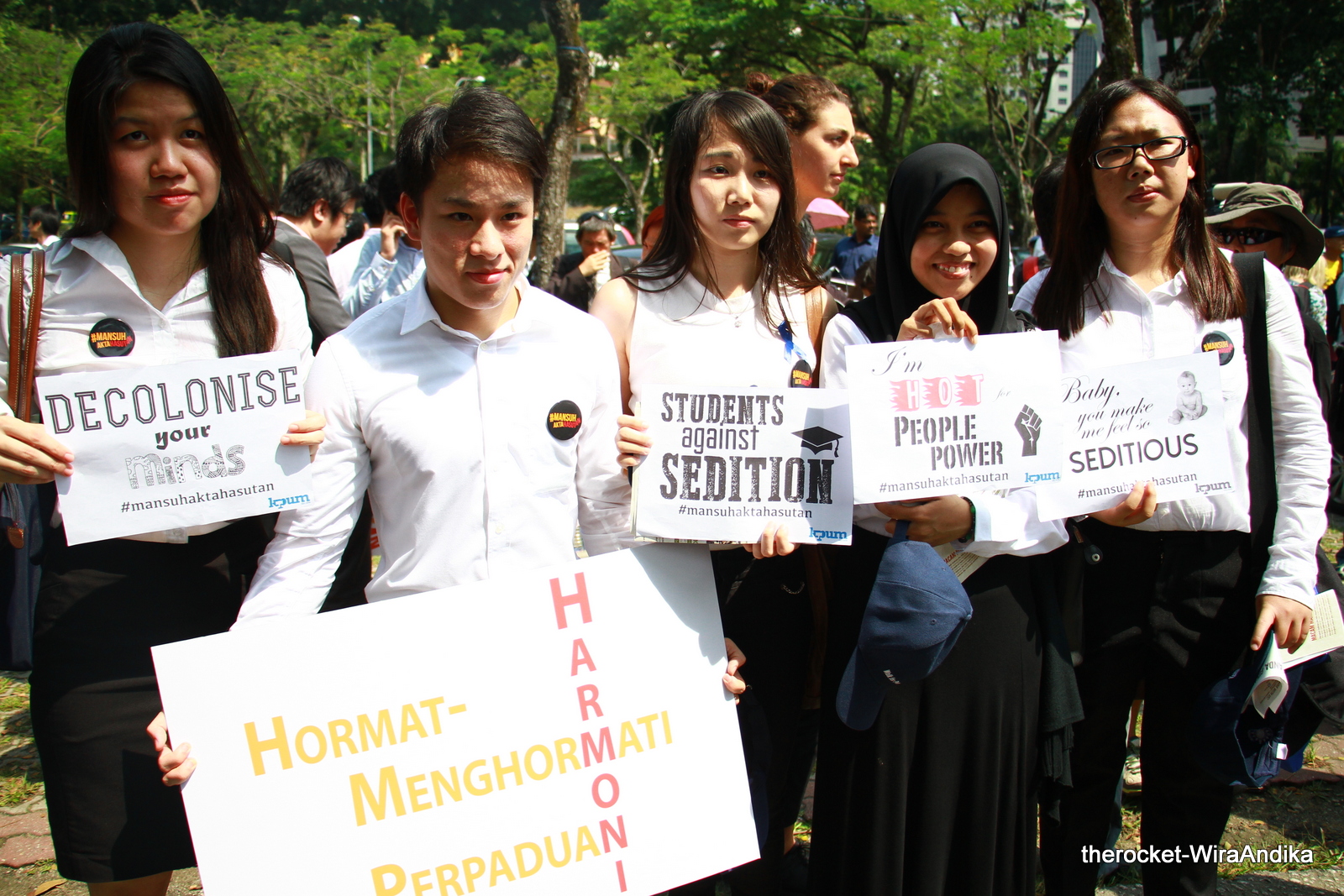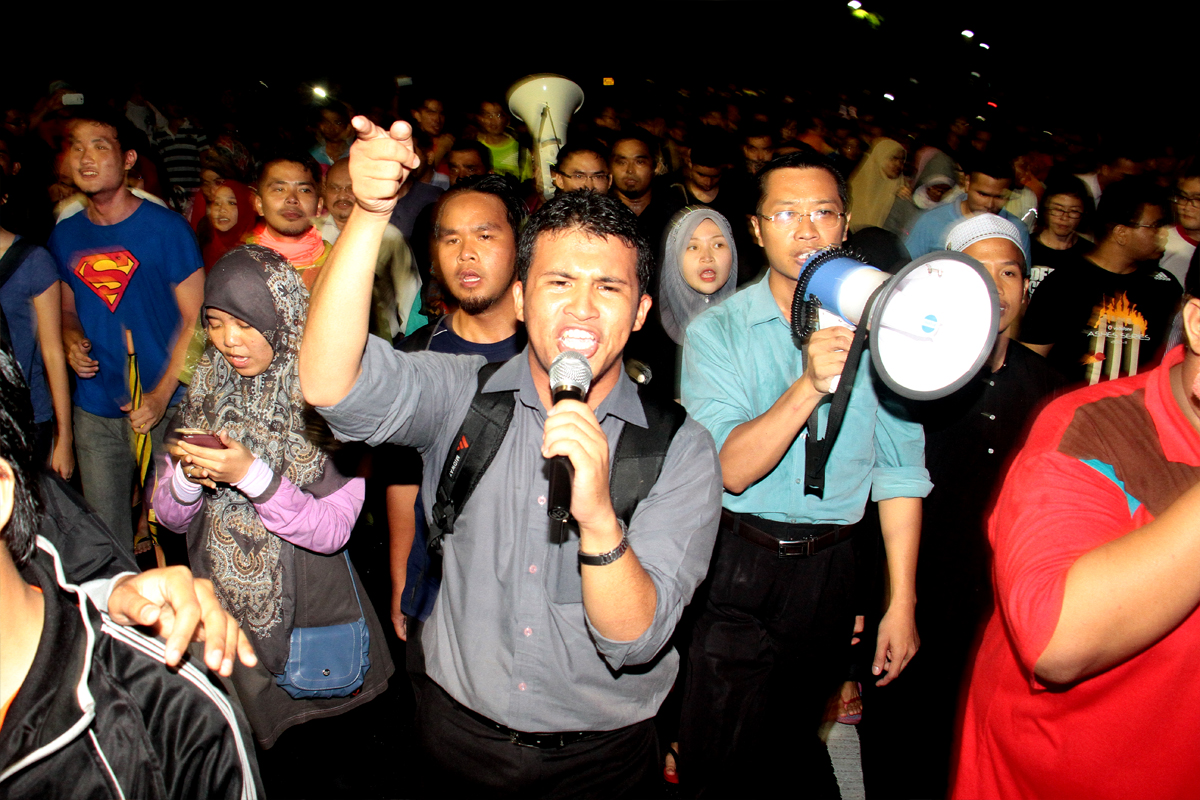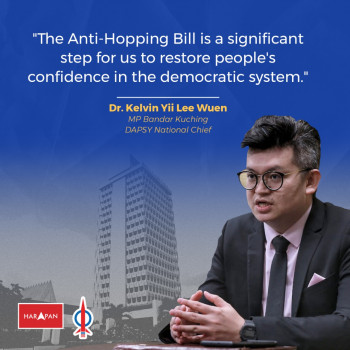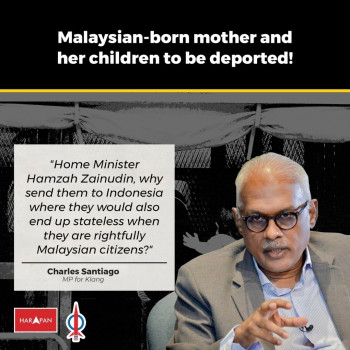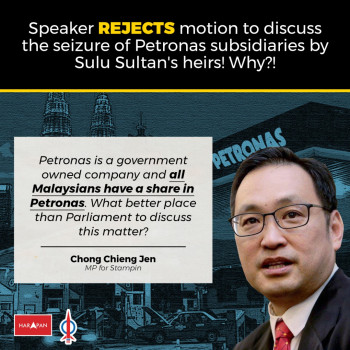By Pauline Wong
The incarceration of opposition leader Anwar Ibrahim has left a gap in the Pakatan Rakyat leadership. Nobody springs into mind immediately in thinking who will replace him.
The leaders of PR who are of Anwar’s level of ‘seniority’ are naught but a handful, or even less. However, ask yourself this: Do we need another Anwar Ibrahim, or is it time to move on?
In the wake of his imprisonment, the political sphere seems to have erupted into a flurry of “Who will the next Anwar be?” or “Can anyone replace him as ketua umum?”
What if we said that a replacement for Anwar is not what PR needs, but someone entirely new who would be the game-changer in this stagnant political atmosphere?
The data supports this idea.
In a speech DAP leader Lim Kit Siang gave during Anwar’s last public ceramah just the night before his verdict, Lim said almost 90% of Malaysia’s 30 million population were born after Merdeka.
The age make-up of Malaysia’s population are: 0-14 years (28.8 percent); 15 -24 years (16.9 percent); 25 – 54 years (41.2 percent); 55 – 64 years (7.6 percent); and 65 years and over (5.5 percent).
In the previous general elections in May 2013, 30 percent of the 13.3 million registered voters were young voters. According to the Election Commission, there are 450,000 people turning 21 each year.
The demographics are telling, all on their own.
About 30 percent of Malaysians today were not born yet when the Reformasi of 1998 took place, and there are about 20 percent of Malaysians who were very young (below 12 years old) when Anwar was arrested, beaten, and carted off to jail for sodomy that first time.
Anwar — his image, his presence, his influence — means less to them, and unlike supporters who took to the streets for him, these young ones feel less connected with the uprising. One could suppose that the significance of his present incarceration does not impress quite so heavily in their minds.
The loss of Anwar, for them, is probably seen not as a devastating blow to opposition politics, but as a possibility for change; for more young leaders to stand out.
The younger generation and “DIY” politics
Curiously, this also translates to a deeper connection with private individuals who speak out and call for change; people like activist Syed Azmi and students like Fahmi Zainol and Adam Adli, all three whom are barely in their 30’s.
This new ‘me’-centric generation, born and bred in an era of social media and (to some extent) narcissism, are not about to throw their lot behind one man who they see as their leader; they are more likely to join the cause because they want to.
The politics of figureheads exercising control like an overmind in a swarm is, to their minds, ‘old’ politics.
The data continues to paint the picture that the youth are increasingly looking to themselves, as individuals, and to who they perceive as their ‘peers’ in terms of leadership.
Putting into context a 2008 study on youth by research body Merdeka Centre and a 2013 report on youth involvement in politics:
The 2008 study found that although the youth are aware of current affairs, they remain politically distant because they feel that they have little voice and influence on the government;
The 2013 report shows that this has not changed, and the Youth Development Index (YDI) report stated that Malaysian youths rank 47th among 51 Commonwealth nations in the political participation domain;
The long-maligned University and University Colleges Act was amended to allow students to participate in politics in 2012, whereas before it was forbidden.
Taking these facts into account, the conclusion that most would draw is that these statements do not make sense — how can greater freedom (from the amendment of the UUCA in 2012) equal less political involvement (from the 2013 report)?
This could be because the youth are stepping away from politics per se, and moving forward into social activism, where they, as the ‘ordinary Joe’ or ‘common man’ think they can make a change.
The youth are no longer relying on politics to influence policy or government, but are taking matters into their own hands. They no longer ‘look to’ the political leaders to make the changes for them, but are now entering the realm of civil society movements.
As such, it would be a mistake for any political party to think that simply fielding younger candidates would win over the youth. It takes much more than age to win. The candidate must not only be young, but relatable to the young. He or she must be seen to be one of them, not their ‘representative’.
There are more ways to play the game of politics than the ones the current set of politicians are used to. This set of politicians now have been in power for over 20 years, some have been in politics for nearly all their adult lives — the politics they are accustomed to is one of ‘one man speaks for all’.
We saw this in the Mahathir-era, and now, the Najib-era. Both Prime Ministers lead their coalitions like a congregation of single-minded ants.
Sure, BN fielded some young candidates back in GE13, but these candidates are, like their older fellow-candidates, expected to toe the line. And, to some extent, the same could be said of PR candidates.
And in this, not that it diminishes his contributions in any way, Anwar is a product of this old school of politics, and it is possible he realises this keenly, and admits that if his imprisonment means he can save Malaysia, then he would gladly be jailed.
Fight for Anwar’s freedom if you wish, but remember to fight also for Malaysia’s future, for the era of hero politics is over, and the time for the common man is here. – The Rocket

